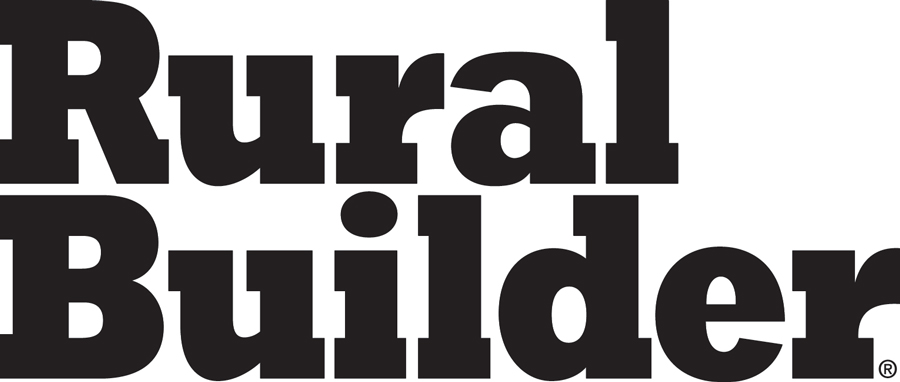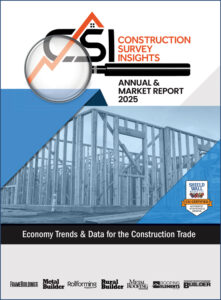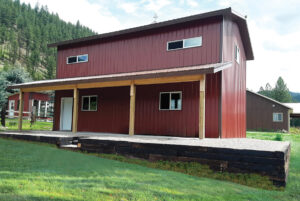For Business Success, Adopt and Enforce Standardized Techniques, Tools, and Metrics
By George Hedley
To be successful in the construction business, you must attain the field results you want to achieve. Therefore, what systems and standards do you have, maintain, train, and enforce that will almost certainly guarantee you will finish your jobs on time, make your customers happy, and make lots of money?
Hitting your field performance goals means you did exactly what you wanted to do, including your estimator pricing the work at exactly what it costs to build, your project manager doing what the contract requires, and your supervisor and foremen bringing projects in on budget without any punch-list items or callbacks.
Winning coaches have the right playbook, plays, and players who follow plays, which will produce positive results. In construction, you also need the right tools, standardized techniques, and repeatable systems in place to make sure everyone does things the same way over and over. For example, you don’t want your five foremen running their jobs, forming concrete, framing lumber, erecting steel, or hanging drywall differently from each other. You want them all to do things the same way to ensure consistent results.
What would guarantee that you achieve results?
Managing construction projects is difficult, as there are so many moving parts totally out of your control. You don’t have control over weather, complete plans, fair customers, perfect engineering, prompt payment, excellent supervision, workmanship, supplier deliveries, or field conflicts. And then add a multitude of unforeseen problems if you don’t control how your foremen manage their crews or perform work properly.
In order to achieve winning results, you have to maximize the controls, standards, and systems you have in place, make sure they are implemented and followed, and then manage the process to make sure things happen the way you expect them to work on an ongoing basis. Your job as the owner or manager of a construction company is to follow the example of professional coaches and make sure your players do things the same way and are expected to follow your company standards. But first, you have to have systems that are written and people trained to follow them.
What field systems will guarantee that you achieve results?
When my construction coaching groups get together, we talk about their best business practices and compare notes. After working with hundreds of successful contractors, it is obvious why the top performers stay at the top of their game. They do the same things to ensure success. What five or ten things done perfectly would ensure the success of your field operations? The following is the field standards and systems I have observed that will help improve your field perform well.
Field Must-Do Systems
1. Establish and maintain updated detailed project budget:
a. Include cost codes, labor hour budget, subcontractor costs and scope, material budgets, and overtime allowed in budget.
2. Job cost labor scorecard management:
a. Update crew labor job cost scorecard weekly with labor hour budget, hours used, estimated hours to complete, and estimated final labor hours versus budget.
3. Hold regular project meetings:
a. Pre-job turnover meeting
b. Pre-job field start-up meeting
c. Pre-job customer meeting
d. Weekly customer meetings
e. Biweekly with all subcontractors on job currently and required in next four weeks.
f. Monthly all field supervisor meetings to review systems, performance results, and provide training.
4. Daily:
a. Turn in labor and equipment timecard.
b. Prepare daily field job report with photos.
c. Document all delays, schedule changes, additional move-ins, and conflicts.
d. Order all required materials to arrive three days prior to date needed.
e. Meet with all subcontractors onsite two weeks prior to requiring them to start work.
5. Weekly:
a. Update two- to three-week look-ahead schedule prepared by field superintendent or foreman and turned into office every Friday.
b. Manage, schedule, and maintain company equipment and call off all equipment and rentals.
6. Weekly Performance Review:
a. Onsite job walks with project manager, job superintendent, and/or crew foreman to:
• Review updated job and look-ahead schedule.
• Review labor job cost scorecard — labor spent versus budget.
• Perform quality control punch list.
• Prepare a punch list and complete all the items.
• Prepare a safety inspection report and remedy all the items required.
• Review current and potential change orders.
• Review completed work to verify percent complete for monthly job progress payment and subcontractor and supplier invoices.
7. General Field Standards:
a. Never perform extra, change order, or free work without pre-approval.
b. Project manager or general supervisor visit every job to make sure it is ready prior to scheduling crews.
c. Project manager or general supervisor visit jobs prior to allowing crew to leave job to make sure they are completed with each phase, have no remaining unfinished items, and all current punch list items are signed off and completed.
8. Develop, implement, and enforce job specific rules including:
a. Clean-up daily standards, trash bins, temporary facilities, power, parking, protection of adjacent work, and damage to other’s work.
b. Schedule and performance requirements, crew size, deadlines, move-ins, mobilizations, warranty work, etc.
c. Payment and invoice standards, allowable markup, paperwork requirements, deadlines, change order payments, lien release requirements, late payment requests, retention terms, and final payment requirements.
d. Required deadlines for performance, notices, submittals and shop drawings, notices, documentation, and paperwork.
Develop your must-do systems and standards
Get your project managers, field superintendents, and foremen and crew together to list your top field task systems which, if installed and monitored, will improve your field performance. For example, a concrete contracting company would want their crews to have standard field systems for the following: staying on budget, meeting the schedule, eliminating callbacks, forming concrete footings, forming concrete slabs, expansion joint spacing, bolt installation, steel embed bracing, concrete finishing details, concrete curing standards, pre-pour checklists, and slab edge details.
With your top company field standard systems in place, your superintendents and foremen can then be held accountable and responsible to always do things the company way. The project manager’s job is to enforce and continually train these standards to make sure they are followed.
Make sure it’s clear to your field supervisors that there’s no choice whether these systems are followed or not. Take it down to the basics. If your foreman worked at McDonalds, would he get a choice how many pickles he put on hamburgers? Your company must be run the same as McDonalds if you want to ensure consistent results, performance, and quality.
Create “must-do” standard company systems for each area of your company that also must be followed. These systems will ensure your overall company functions tightly and in control, repeately producing the results you want. RB
George Hedley CPBC, is a certified professional construction business coach, consultant, and popular speaker. He helps contractors build better businesses, grow, profit, develop management teams, improve field production, and get their companies to work.



















